Humans of AUP: Alex Delapalme
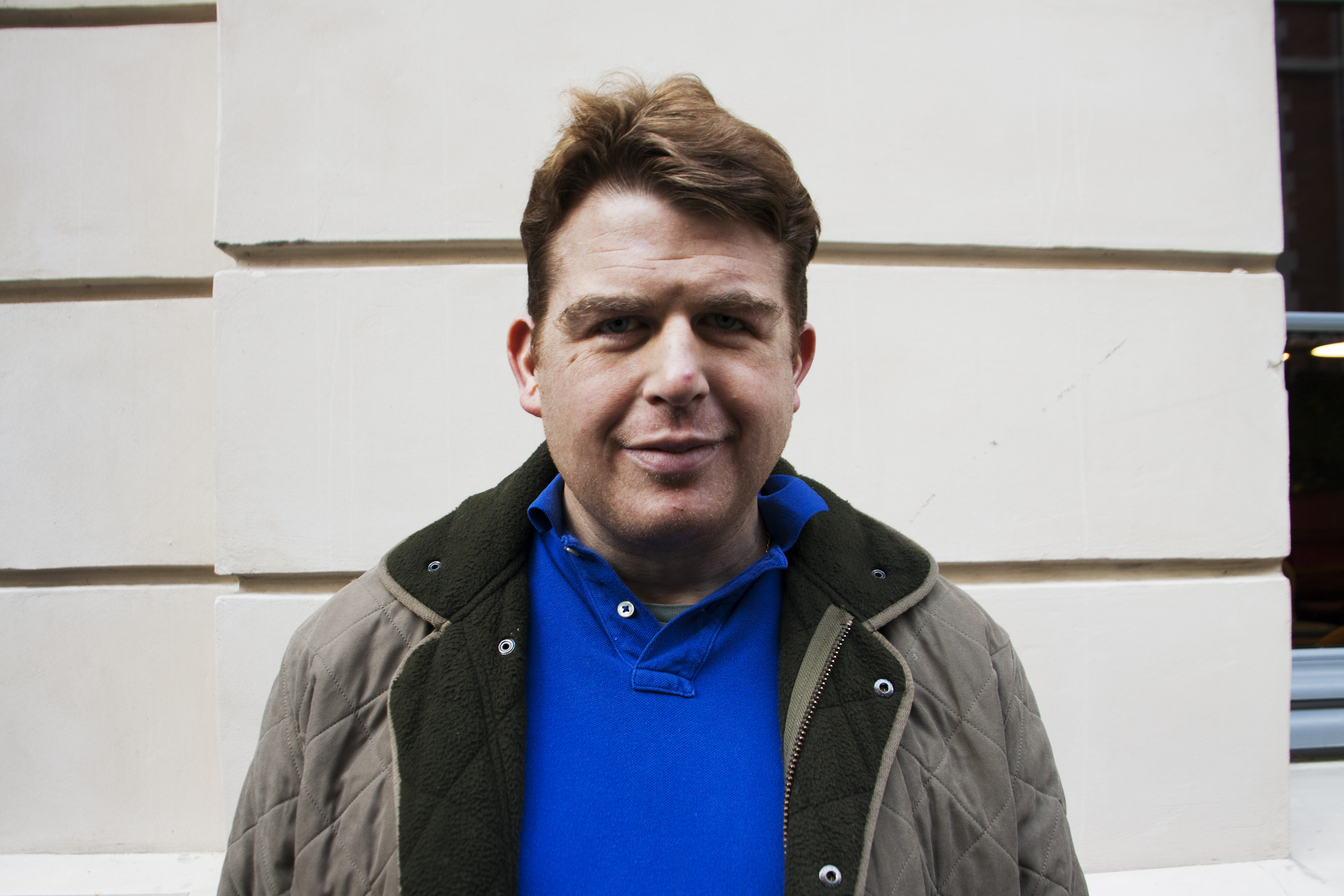
“I was born in an American hospital in Manhattan, New York. My mother is the daughter of a lieutenant commander in the American air force and my grandfather was also in the military. We have a very strong naval/military background, and that’s why the children are emotionally crippled, meaning your love is good but you don’t have too much to give. You love the way you can but it isn’t necessarily the right way. It’s like a disease or syndrome but it’s not your fault; it depends on how you were brought up. My parents had a little Romeo and Juliette story, they met when they were 18/19 years old. But you see, my father was an alcoholic, and this was from my grandfather who was an alcoholic and also bipolar; these things are genetically passed down. Now he’s a recovering alcoholic and psychologist. A lot of people around here actually know him by name because he has helped a lot of juniors, not just with alcohol, but with relationships as well. He went to university in America so he was your age too at one point; he knows how it goes. Especially when you’re in Washington where there are problems with drugs, alcohol and all that.”
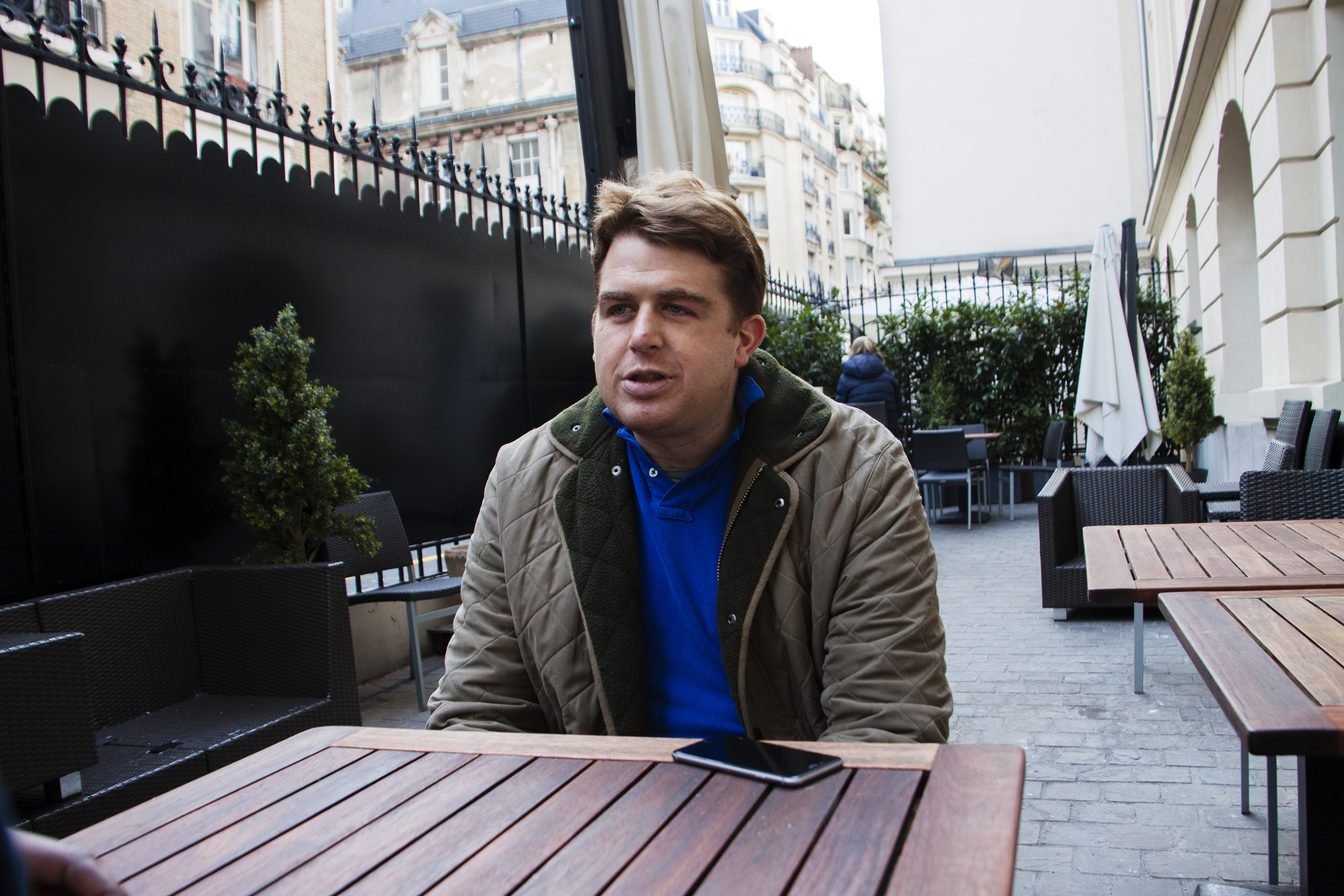
Image Credit: Sarah Plattes
“I don’t really know my mother. My parents married when they were 24/25, but got divorced when I was 17. She was very co-dependent, but I haven’t seen her in years. But it’s understandable, my father and I have these disorders, and that tends to get on peoples nerves. I mean, we were bipolar and alcoholic, so we had a tendency to do things that were harsh on the people around us. I was born through a very late cesarean or C-section, and there was a problem involving liquid oxygen. It was extremely rare and a very last minute incident. Part of the problem was that I was a very big baby and I got stuck in the middle; the doctors lost a lot of time. At that point I had my mouth open and swallowed liquid oxygen, which was located in the stomach, while they were pulling me out. I was stuck there for about 30 seconds, no more; otherwise I wouldn’t have made it. The result was a very severe learning handicap. In America, medicine is much more advanced and they have the right tools. I love France, but I know if I was born here I wouldn’t have made it.”
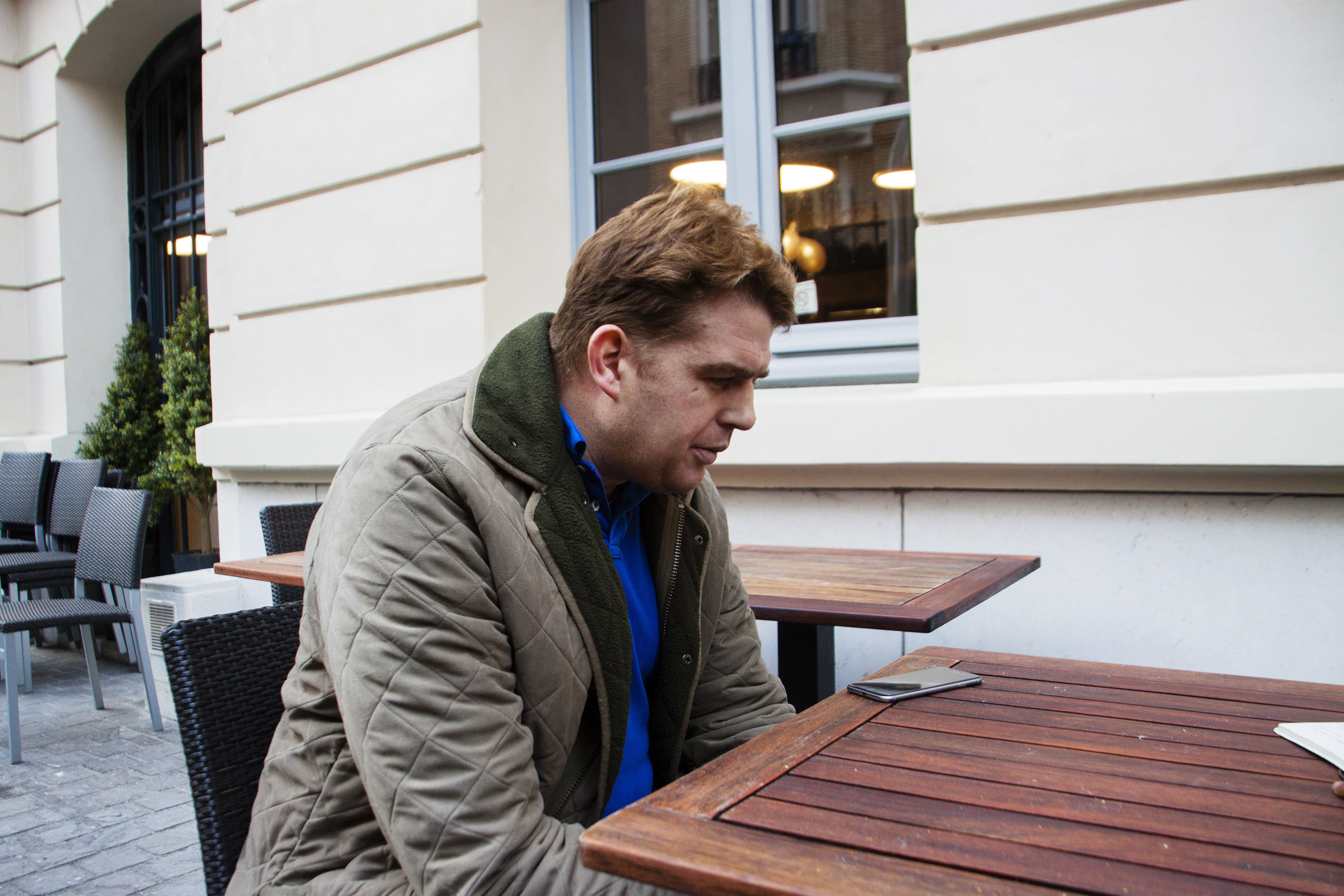
Image Credit: Sarah Plattes
"I was stuck there for about 30 seconds, no more; otherwise I wouldn’t have made it. The result was a very severe learning handicap."
“Communication has always been difficult for me. With a learning disability, you suffer three things: socialization, mathematics, geography. Math for me is impossible. When you have bad social skills, you want to hide and stay away from people; that was me for a very long time. Then I didn’t care about it at all for a while. I felt indifferent and I just put it off as ‘people are stupid’ but I know better now. I used to always put the blame on others and never wanted to take responsibility for anything, but I learned that it’s all about your attitude. When I stopped taking my medication, I found out that I suffered from three syndromes: immaturity, communication and behavioral difficulties. They are a result of the incident at birth. When I came to AUP, I was very antisocial too, but I wanted to be social so I took medication at the same time. And that was all just too much. I almost lost my job twice! The thing is when you take medication it can really mess with you; moods swings and stages of hypomania. You can have physical/mental excitement where you just can’t sit still, or you have emotional excitement, which is way worse because you tend to yell and say things that you don’t even realize. I had a lot of problems with that. I tried to be calm, I tried to be cool but you don’t realize when that’s far from the case.”
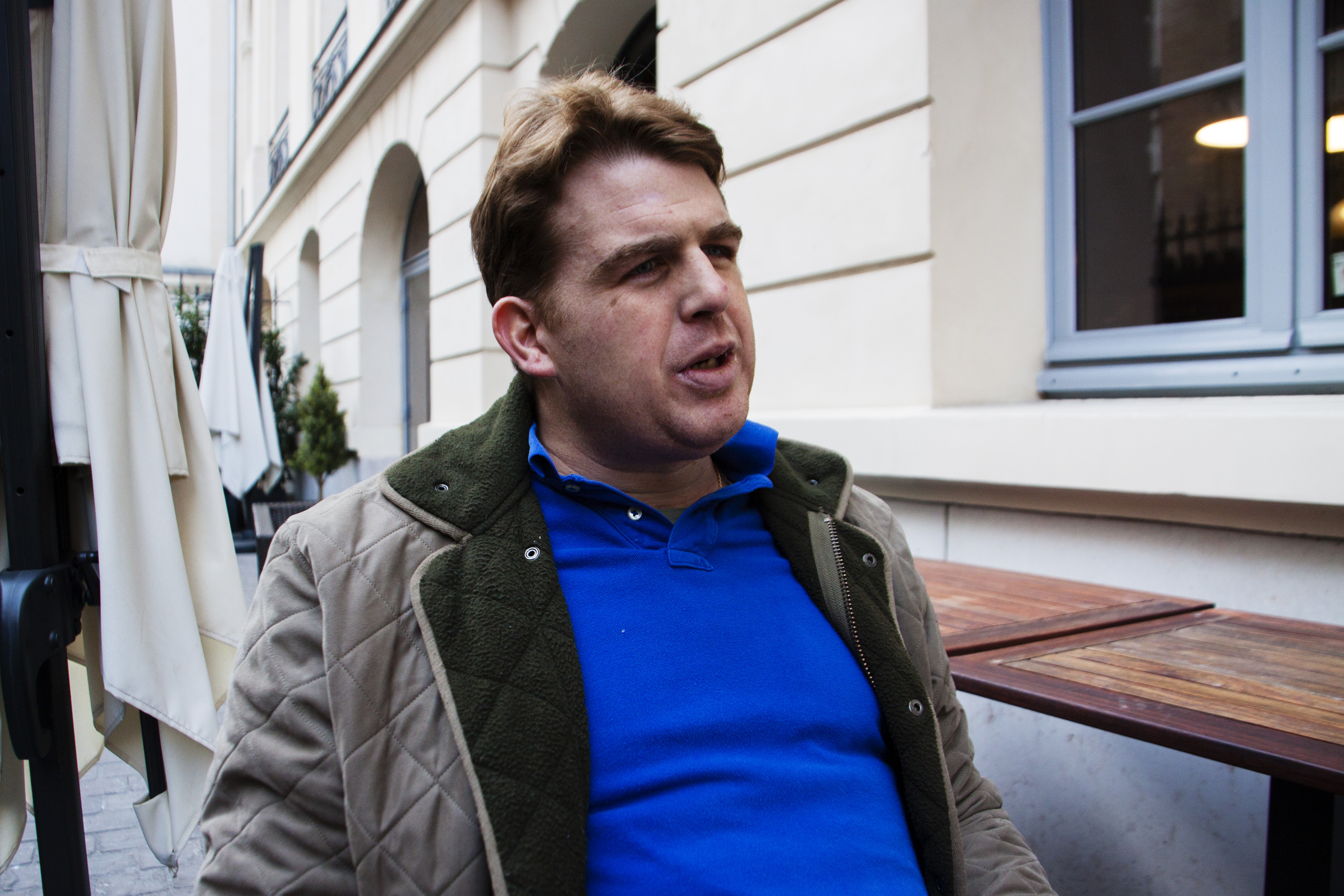
Image Credit: Sarah Plattes
"When you have bad social skills you want to hide and stay away from people. That was me for a very long time. Then I didn’t care about it at all for a while, I felt indifferent, and I just put it off as ‘people are stupid’ but I know better now."
“When I was 34 I almost got fired, and I’m not too sure why, but I was on four separate medications at the time from a very good clinical psychiatrist. Clinical psychiatrists are good but the problem is they only believe in giving you medication, and so I was always on all sorts of meds. And sometimes they don’t get the doses right; you get too much or too little and it affects your behavior and emotions either way. Then you make those around you worry. I always liked my colleagues at AUP very much, and sometimes I can tell that they’re wondering what’s going on with me.”
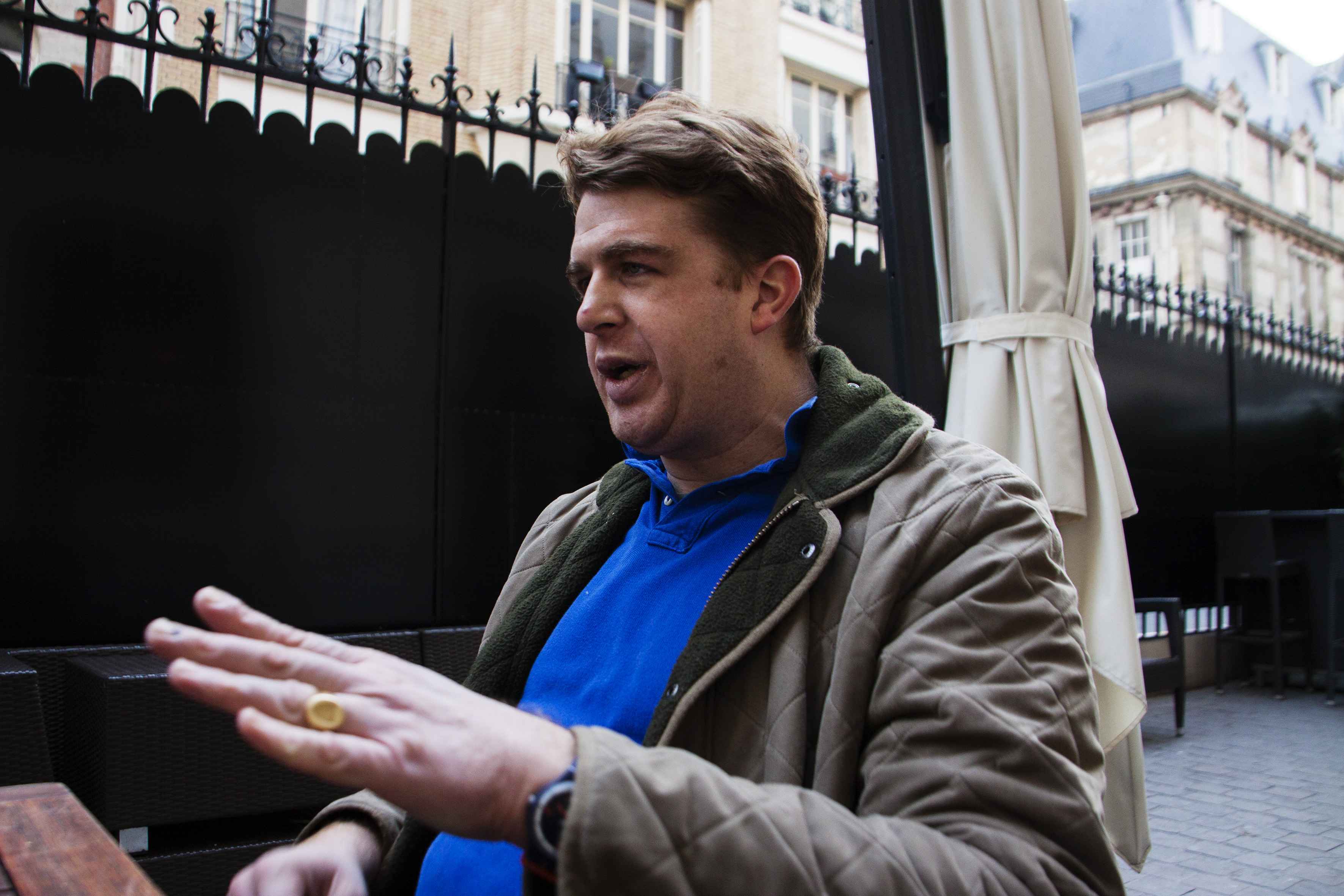
Image Credit: Sarah Plattes
“I almost died of a blood vessel aneurysm, basically a blood vessel explosion. Arteries are usually about three to five centimeters in size, and mine were seven centimeters; one in my abdomen region and one near my heart. I was very lucky because my father works in this field and so he knew the right people to call. I suffered from a lot of diseases we didn’t know of till a few years ago. I used to smoke a lot and I quit just before I nearly died from the vessel explosion. The operation took place two years ago and I’m still recovering from it.”
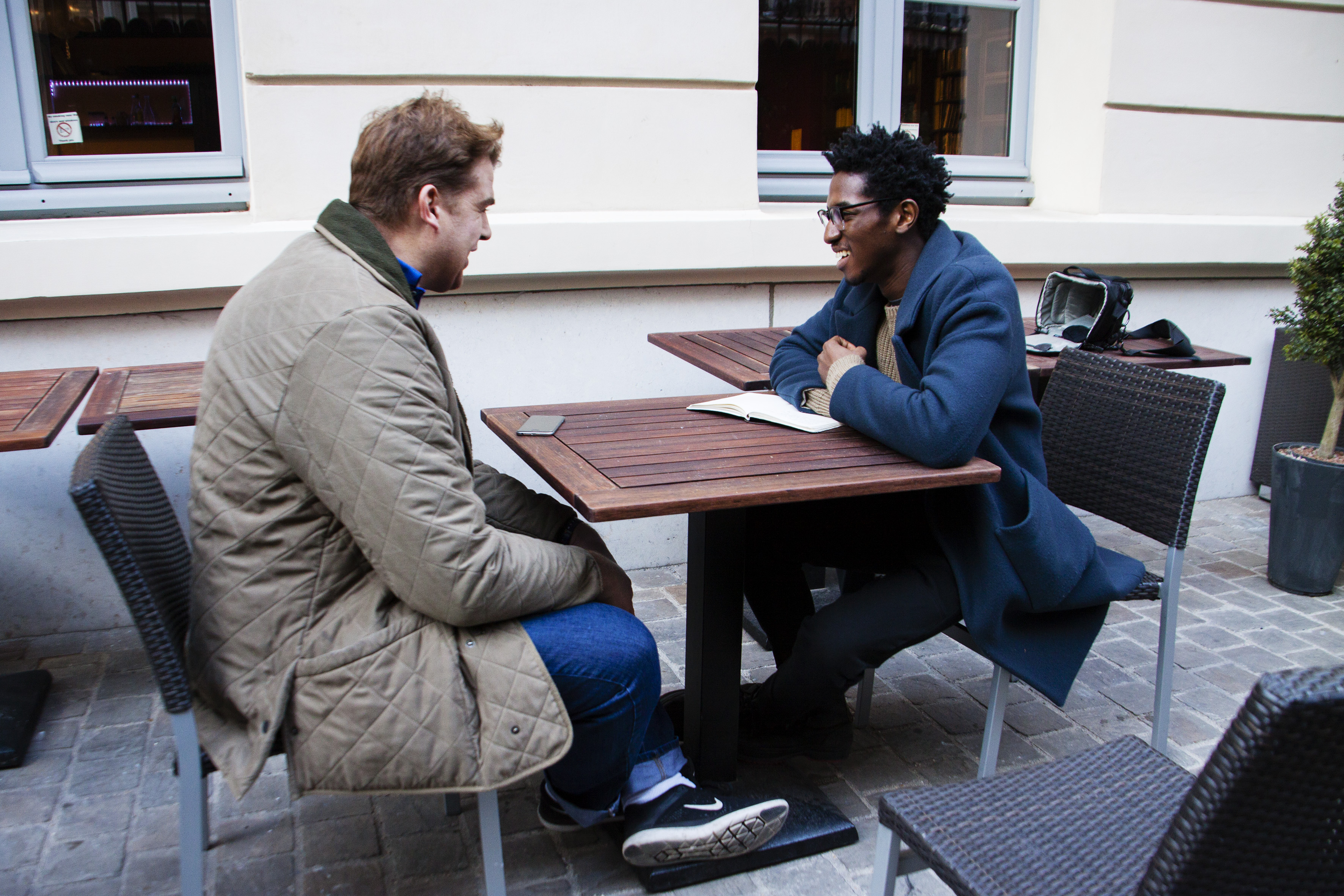
Image Credit: Sarah Plattes
“I grew up in Paris. I went to school in the US for a very short period of time, but spent a lot of time in the UK. First time I met you, I knew that you came from England or at least had some background there. I thought it was great because we both went to British boarding schools so you could relate to some of the things I was saying. I’ve been working at AUP for 20 years delivering the mail. I graduated from high school at 18, but my learning disability was too severe for me to pursue a higher education, which was very hurtful and stressful for me. And in order to get rid of the stress, I did a lot of theater and cinema and creative writing, which I love very much. Once, when I was 13 in the UK, we had a Cinderella play around Christmas time and guess who played the sister? I was in a dress! My friends and I had to play the sisters and there was even a funny dance. And this is one of the reasons why I moved to the UK, because they don’t really have these things in France to help cope with learning disabilities.”
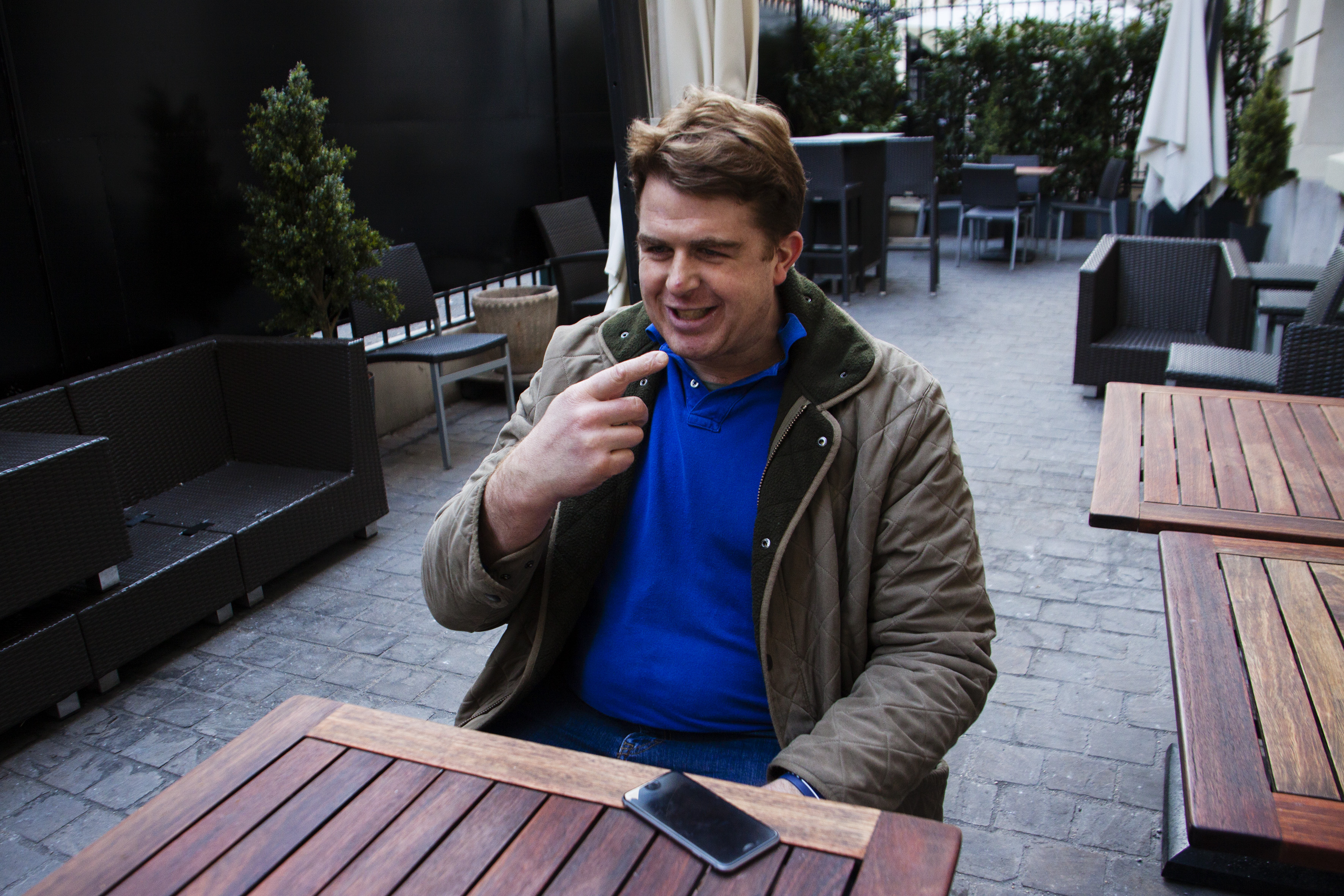
Image Credit: Sarah Plattes
"I’ve been working at AUP for 20 year delivering the mail. I graduated from high school at 18, but my learning disability was too severe for me to pursue a higher education, which was very hurtful and stressful for me."
“I have two dogs and I love them. I used to have a Labrador too and I’ve always wanted dogs for as long as I can remember. But one thing I wasn’t aware of is how difficult and expensive it is to take care of them, and I couldn’t take care of them myself. I love animals and I think I learned a lot from them. They helped me with my confidence because you have to speak to people sometimes when you’re with them.”
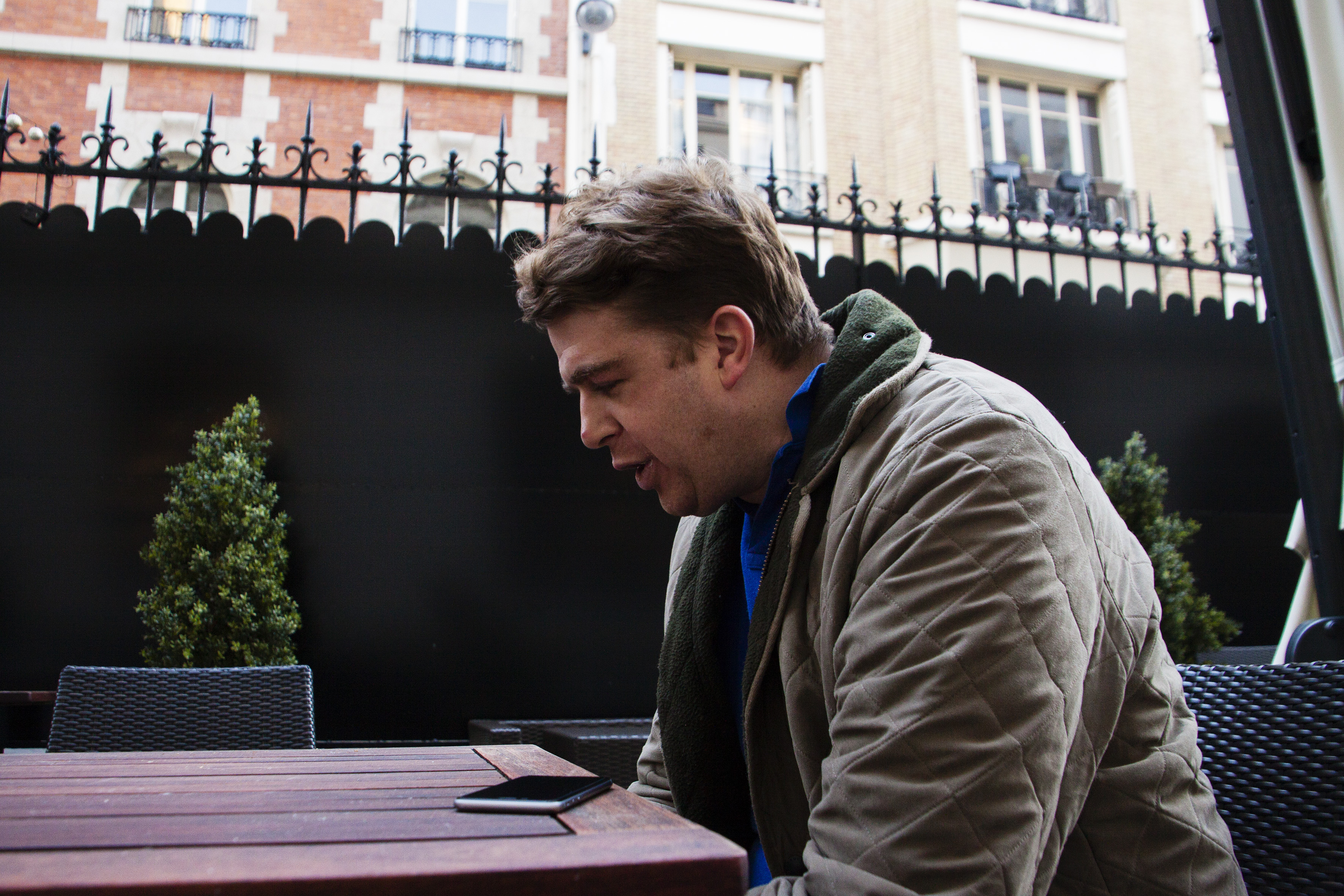
Image Credit: Sarah Plattes
“What tends to happen when you have a something like bipolar disorder is the doctors tend to drug you with all sorts in the beginning to find the right stuff, but you have to be careful because your behavior can then affect the people around you. And I’m a nice guy; I just want to be like everyone’s little brother but its tough sometimes. I tend to talk a lot and not take enough action but that’s not because I don’t want to. I learned that I can’t do things too fast; when you’re handicapped you need to have a guardian or someone to look after you, help you take care of your finances, and make sure no one take advantage of you. There are many cases where people get married to handicapped people, take advantage of them, and then leave them. It’s horrible, so you must be careful.”
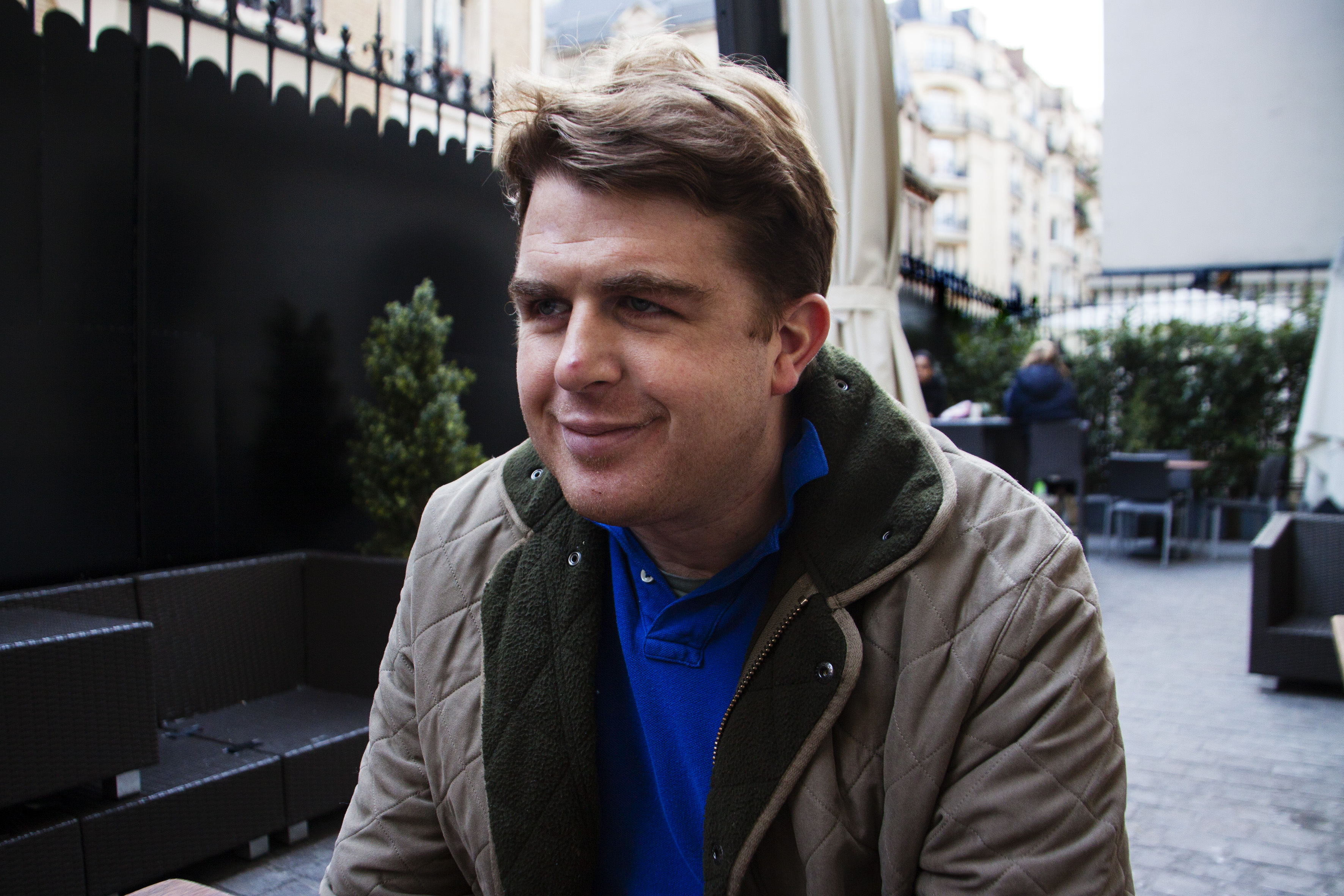
Image Credit: Sarah Plattes
"What tends to happen when you have a something like bipolar disorder is the doctors tend to drug you with all sorts in the beginning to find the right stuff, but you have to be careful because your behavior can then affect the people around you."
“My advice to people that are struggling psychologically or struggling with mental health or disorders is, take your time. You really need to understand that it’s a long road. You need to take responsibility and work hard on changing your outlook on life. It’s hard and takes time but it can be done. Also make sure you have good support, be it friends or family; you always have to start somewhere. You just hope that one day it changes. If you change and people can trust you then it’s a first step.”





